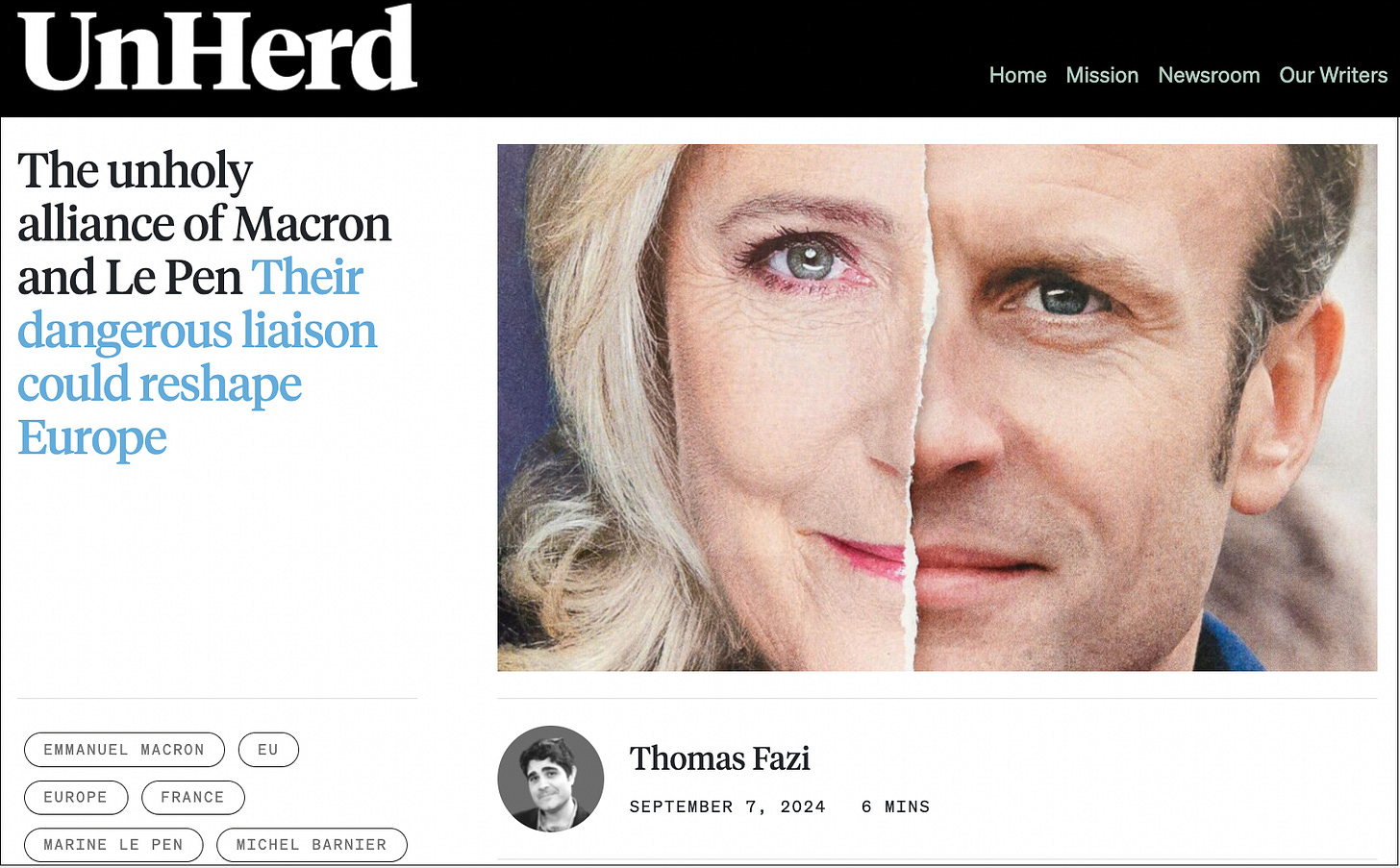The rise of Macro-Lepenism
The alliance between centrist-liberal and right-populist forces — a phenomenon that could be characterised as liberal-conservative populism — may soon become the blueprint for other European countries
I’ve written for UnHerd about the rise of Macro-Lepenisme and how this alliance between centrist-liberal and right-populist forces — a phenomenon that could be characterised as liberal-conservative populism — may soon become the blueprint for other European countries: stricter immigration policies and a cultural pushback against progressivism coupled with a relatively mainstream approach to economic and foreign policy within the EU-NATO framework:
Given Barnier’s current positioning as the right-winger of the system, he is the perfect candidate for Macron’s latest political gamble: a de facto alliance between the liberal-centrist forces and the National Rally against the left.
While no formal alliance is needed to approve the new prime minister — and Le Pen would of course never enter into a formal agreement with Macron, as that would amount to political suicide — the president would not have proposed Barnier’s name without first discussing it with Le Pen. He would not have risked the latter supporting a motion of censure against the proposed prime minister alongside the left (which has already vowed to hold a vote). Indeed, Le Pen has already signalled an openness to supporting the new government on individual policies. “Michel Barnier seems to meet at least the first criterion that we asked for, namely, someone who respects the different political forces and is able to address the National Rally, which is the largest party in the National Assembly”, she said.
It’s not hard to imagine the form in which the deal was struck: the new government will tackle some of the issues the National Rally considers a priority—immigration above all—provided the RN doesn’t challenge Macron’s economic reforms and supports France’s policy toward Ukraine. There’s no guarantee, of course, that the deal will hold. But it’s hard not to see this as a resounding victory for Macron. In one stroke, he has marginalised the left while absorbing the National Rally into the mainstream, forcing it to soften its positions on economic and foreign policy issues—and potentially even diluting support for the party, if it’s seen as cozying up to the establishment. Not bad for someone who was considered politically dead just a few months ago.
Read the rest of the article here (also in French). If you’re a paid subscriber and you can’t access the paywall write to me at thomasfazi82@gmail.com.
Thanks for reading. Putting out high-quality journalism requires constant research, most of which goes unpaid, so if you appreciate my writing please consider upgrading to a paid subscription if you haven’t already. Aside from a fuzzy feeling inside of you, you’ll get access to exclusive articles and commentary.
Thomas Fazi
Website: thomasfazi.net
Twitter: @battleforeurope
Latest book: The Covid Consensus: The Global Assault on Democracy and the Poor—A Critique from the Left (co-authored with Toby Green)



